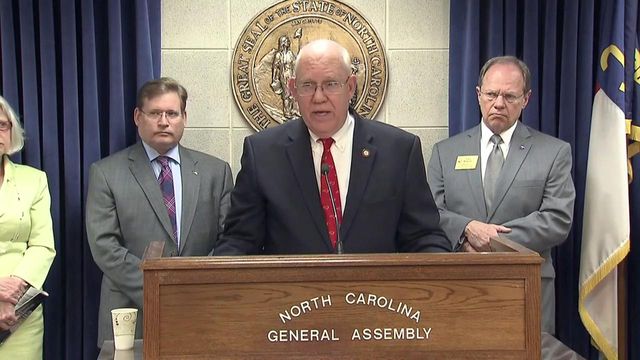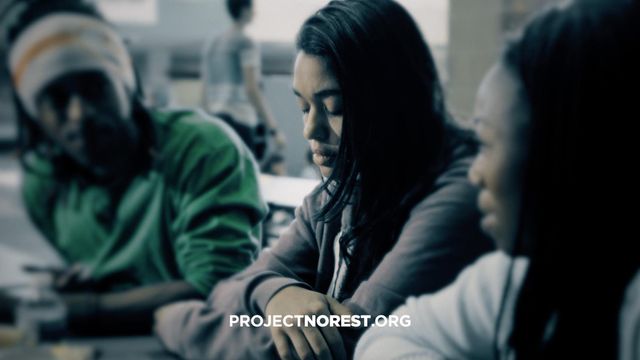NC among top 10 states for human trafficking
In the past 10 years, the National Human Trafficking Hotline has identified almost 2,700 victims of human trafficking in North Carolina.
Posted — UpdatedFilms often portray human trafficking as something that happens only to foreigners, in dark urban back alleys or dirty motels, but the reality is it actually hits much closer to home than some realize.
Human trafficking -- both sex and labor trafficking -- is happening with alarming frequency in North Carolina.
"According to the National Human Trafficking Hotline, there were 181 human trafficking cases reported from North Carolina in 2016," said Dean Duncan, a research professor at the University of North Carolina at Chapel Hill's School of Social Work. "That number includes 130 sex trafficking cases and 41 labor trafficking cases."
Novak added, "That does not mean that North Carolina has more labor trafficking than the rest of the country, but North Carolina has made labor trafficking a priority."
Realistically, however, those numbers fall far short of the number of actual trafficking cases happening in North Carolina since human trafficking can be difficult to identify and many victims do not self-identify as trafficking victims.
What is Human Trafficking?
Human trafficking is the use of force fraud or coercion to compel someone to engage in commercial sex or forced labor or services. It includes all acts involving the recruitment, abduction, transport, harboring, transfer, sale or receipt of a person for the purpose of subjection to involuntary servitude, peonage, debt bondage, slavery or exploitation.
Trafficking does not only include the transport, transfer or procurement of an individual; it is also the ability of the trafficker to benefit, or earn goods, money or anything of value for the labor or sex act of the people being trafficked.
"Awareness and education of the general public and of professionals who may encounter victims in the course of their jobs is also vital," Strickland explained. "The more eyes and ears we have looking for victims, the more victims can be rescued and restored."
For minors under the age of 18, trafficking also includes any case in which the minor is made to perform commercial sex acts, whether or not if force, fraud or coercion is present.
Why is Human Trafficking Prevalent in N.C.
The geographic location of N.C., in part, contributes to the high number of victims and survivors living in the state.
North Carolina lies in the center of the triangle encompassed by Washington, D.C., Charlotte and Atlanta, all of which are hubs of human trafficking.
North Carolina also lies at the crossroads of several major interstates, including Interstate 40 that crosses the state from west to east and several interstates running north to south across the state. These highways facilitate sex and labor trafficking.
Duncan added, "A number of advocates have long pointed to the convenience of major highways for transportation, easy access to and from tourist areas, as well as a large military presence associated with greater mobility and a number of adult businesses in the area as factors that increase the level of trafficking."
Additionally, large sporting and entertainment arenas that host large events also attract traffickers, as does the state's busy agricultural industry and large number of agricultural and seasonal workers.
"There is a large agricultural community with high demand for manual laborers," Duncan pointed out. "These features make it easy for predators to locate, coerce or seize, move and sell vulnerable victims."
Putting a Stop to Human Trafficking
The first step to ending human trafficking in the state is to raise awareness among North Carolinians that human trafficking is a problem that affects all North Carolinians.
Witt added that "the more reporting we do, the more difficult it becomes for this crime to remain a low risk and hidden 'beneath the surface.' "
She continued, "With the reporting, law enforcement agencies can become more proactive in their protection and prosecution efforts."
To report a case of human trafficking or reach out for help today, call 1-888-373-7888 or Text HELP to: BeFree (233733).
Copyright 2024 by Capitol Broadcasting Company. All rights reserved. This material may not be published, broadcast, rewritten or redistributed.






